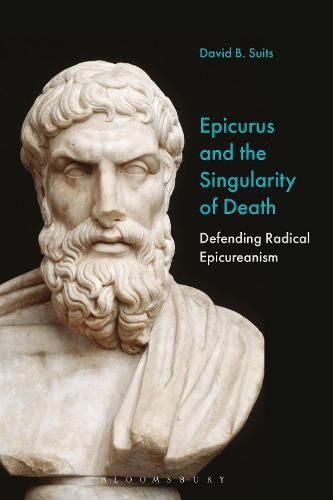Readings Newsletter
Become a Readings Member to make your shopping experience even easier.
Sign in or sign up for free!
You’re not far away from qualifying for FREE standard shipping within Australia
You’ve qualified for FREE standard shipping within Australia
The cart is loading…






In his Letter to Menoeceus, the ancient Greek philosopher Epicurus states that ‘death is nothing to us’. Few philosophers then or since have agreed with his controversial argument, upholding instead that death constitutes a deprivation and is therefore to be feared. Diverging from the current trend and sparking fresh debate, this book provides an imaginative defense of the Epicurean view of death.
Drawing on Epicurus’s Principal Doctrines, Lucretius’s De Rerum Natura and Philodemus’s De Morte, David Suits argues that the usual concepts of harm, loss and suffering no longer apply in death, thus showing how the deprivation view is flawed. He also applies Epicurean reasoning to key issues in applied ethics in order to dispute the claim that there can be a right to life, to defend egoistic friendship, and to consider how Epicureanism might handle wills and life insurance.
By championing the Epicurean perspective, this book makes a valuable contribution to the contemporary philosophical debate about death.
$9.00 standard shipping within Australia
FREE standard shipping within Australia for orders over $100.00
Express & International shipping calculated at checkout
In his Letter to Menoeceus, the ancient Greek philosopher Epicurus states that ‘death is nothing to us’. Few philosophers then or since have agreed with his controversial argument, upholding instead that death constitutes a deprivation and is therefore to be feared. Diverging from the current trend and sparking fresh debate, this book provides an imaginative defense of the Epicurean view of death.
Drawing on Epicurus’s Principal Doctrines, Lucretius’s De Rerum Natura and Philodemus’s De Morte, David Suits argues that the usual concepts of harm, loss and suffering no longer apply in death, thus showing how the deprivation view is flawed. He also applies Epicurean reasoning to key issues in applied ethics in order to dispute the claim that there can be a right to life, to defend egoistic friendship, and to consider how Epicureanism might handle wills and life insurance.
By championing the Epicurean perspective, this book makes a valuable contribution to the contemporary philosophical debate about death.